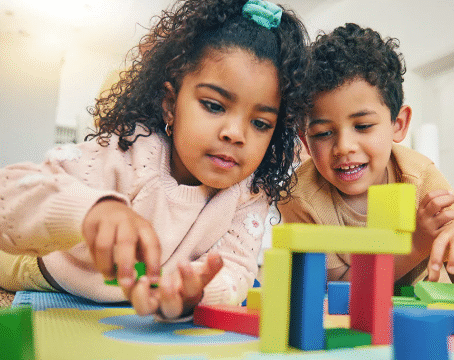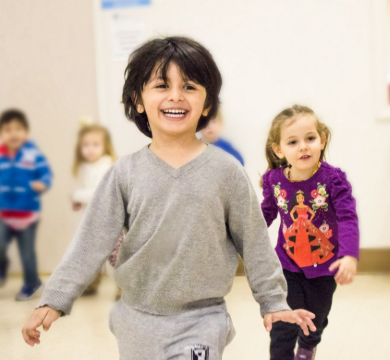Teaching children healthy habits is often associated with nutrition, exercise, and sleep routines. While these aspects are important, another equally vital habit is learning kindness. Acts of kindness not only shape a child’s character but also foster emotional intelligence, social skills, and a sense of community. When children practice kindness regularly, it becomes a lifelong habit that enhances their overall well-being and contributes to the happiness of those around them.
Introducing acts of kindness at an early age is crucial. Young children are naturally curious and impressionable, which makes early learning moments perfect opportunities to instill empathy and compassion. Parents, teachers, and caregivers can create simple yet meaningful ways for children to engage in kind behaviors. These experiences help children recognize that their actions have the power to make a positive impact on others. When kindness is modeled consistently, children are more likely to internalize these values and carry them forward throughout their lives.
One effective way to nurture kindness is through everyday family interactions. Children often mimic the behavior of adults in their lives, so demonstrating kindness toward others can leave a lasting impression. Small gestures, such as helping a neighbor, offering a compliment, or expressing gratitude, can be easily incorporated into daily routines. By observing these behaviors, children learn that acts of kindness are not only appreciated but also an essential part of building strong, positive relationships.
Storytelling can also be a powerful tool for teaching kindness. Children relate to stories that involve characters showing empathy, helping others, or solving conflicts peacefully. Reading books or telling stories that highlight acts of kindness encourages children to think critically about how their actions affect others. Furthermore, stories provide a safe environment for children to explore emotions and understand perspectives different from their own. Discussing the characters’ choices and feelings can spark meaningful conversations that reinforce the importance of compassion.
Another approach is through community involvement. Simple activities, such as helping at a local food bank, participating in clean-up events, or visiting elderly neighbors, allow children to experience firsthand the satisfaction that comes from helping others. These activities teach responsibility, teamwork, and respect while instilling a sense of purpose. When children see the tangible results of their actions, they are more motivated to continue engaging in acts of kindness. Additionally, these experiences can strengthen family bonds, as parents and children work together toward shared goals that benefit the community.
Kindness can also be promoted through play. Cooperative games that encourage sharing, taking turns, and supporting teammates foster social skills and empathy. Children naturally enjoy games, so embedding kindness into playtime feels natural rather than forced. Role-playing scenarios, where children practice helping a friend in need or resolving conflicts peacefully, provide valuable opportunities to apply kindness in real-life situations. Through play, children develop a strong foundation for understanding fairness, respect, and compassion.
Recognizing and praising kind behavior is another essential component. Positive reinforcement helps children understand the value of their actions. When a child is acknowledged for sharing a toy, comforting a friend, or helping a family member, it reinforces that kindness is appreciated and worthwhile. Praise should focus on specific actions rather than general traits, as this teaches children that their efforts have a direct and meaningful impact. Over time, this reinforcement encourages children to act kindly more naturally and consistently.
Kindness can also be integrated into learning experiences at school. Teachers can create classroom routines that promote helpfulness, cooperation, and respect for peers. Simple practices, such as assigning classroom jobs, encouraging peer support, or creating a kindness wall where students share good deeds, cultivate a positive and inclusive environment. Children learn that kindness is not limited to family interactions but extends to their broader social circles. Schools that emphasize compassion and understanding help students develop both academically and emotionally.
Technology and media offer additional opportunities to reinforce kindness. Educational programs, apps, and videos that highlight positive behavior and empathetic problem-solving can complement real-world experiences. While screen time should be monitored, thoughtful content can serve as a discussion starter and inspire children to practice kindness in their daily lives. Parents and caregivers can watch or play these programs alongside children, creating opportunities to reflect on and apply the lessons learned.
Teaching kindness also involves encouraging children to manage their emotions constructively. Children who are aware of their feelings and can express them appropriately are better equipped to respond kindly to others. Practices such as mindfulness, breathing exercises, and reflective discussions help children develop emotional regulation skills. When children understand their emotions, they can empathize more deeply with others and respond in supportive ways, even in challenging situations.
Creating a culture of kindness in the home and community is a long-term investment in a child’s character development. Consistently integrating acts of kindness into daily life nurtures a sense of responsibility, compassion, and self-worth. Children who grow up practicing kindness tend to be more resilient, confident, and socially adept. They understand that their actions influence others and that positive behavior can contribute to a happier, healthier environment for everyone.
Ultimately, teaching children healthy habits through acts of kindness is about more than just performing good deeds. It is about shaping a mindset that values empathy, compassion, and connection. When children learn that small gestures of kindness can have meaningful effects, they develop a sense of purpose and a deeper understanding of the world around them. By fostering these habits early, parents and caregivers equip children with essential life skills that promote emotional well-being, social success, and personal fulfillment.
In conclusion, acts of kindness are a fundamental aspect of healthy habit formation in children. Through modeling, storytelling, community involvement, play, and positive reinforcement, children can learn the importance of empathy, compassion, and respect. Encouraging emotional awareness and creating supportive environments further solidifies these behaviors as lifelong practices. By integrating kindness into daily routines, parents, teachers, and caregivers help children develop into thoughtful, caring individuals who contribute positively to their communities. Instilling these values early ensures that children not only grow up healthy physically but also thrive emotionally and socially, setting the foundation for a more compassionate and connected world.






